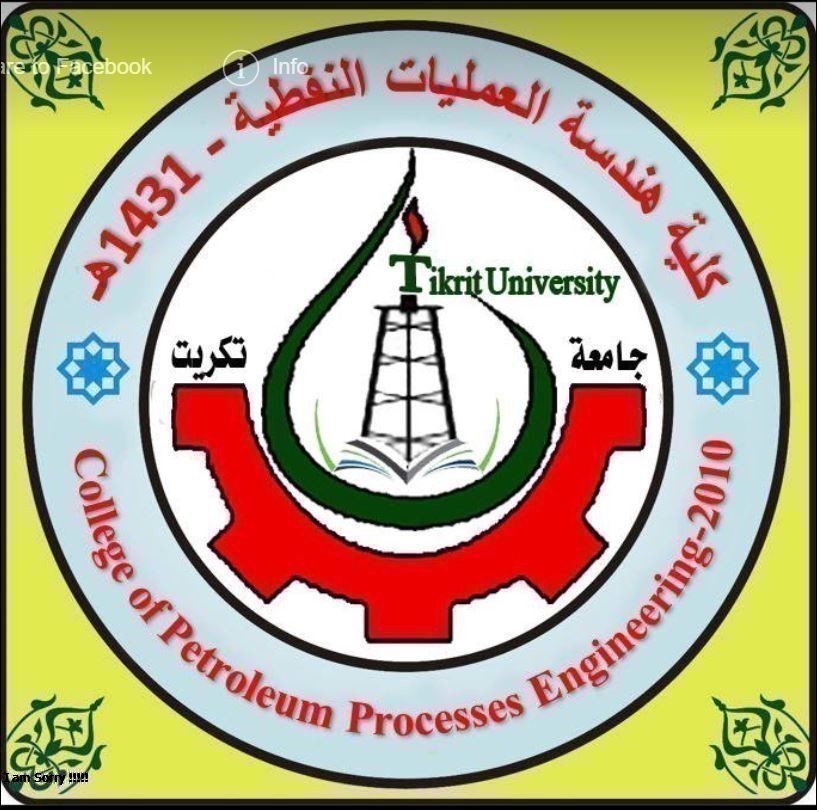Postgraduate Studies
Tasks of the Postgraduate Studies Division at the College of Petroleum Process Engineering
The Postgraduate Studies Division is generally responsible for organizing and managing all matters related to postgraduate programs (Master’s and Doctoral) within the college. The main tasks can be summarized as follows:
Administrative and Organizational Tasks:
-
Organizing the admission and registration processes for postgraduate students in accordance with the regulations and instructions issued by the Ministry of Higher Education and Scientific Research.
-
Monitoring student files from admission to graduation, covering both administrative and academic matters.
-
Preparing course schedules for postgraduate programs in coordination with academic departments.
-
Monitoring students’ academic performance and ensuring compliance with rules and regulations.
-
Organizing examinations (semester exams, comprehensive exams, and qualifying exams) and documenting their results.
Academic Tasks:
-
Coordinating postgraduate students’ research plans in collaboration with academic departments.
-
Monitoring the progress of research projects, theses, and dissertations, ensuring adherence to scientific and methodological standards.
-
Supervising the formation of scientific discussion committees and coordinating their schedules and procedures.
-
Following up on the evaluation procedures of theses and dissertations and documenting the grades after the defense.
Technical and Statistical Tasks:
-
Documenting and archiving all student data and scientific research electronically and in hard copy.
-
Preparing periodic reports on student numbers and progress stages, and submitting them to the College Dean and University Presidency.
-
Participating in annual evaluations of academic programs and ensuring quality standards.
Coordination and Follow-up:
-
Coordinating with the University Presidency and the Ministry of Higher Education regarding updates to regulations and decisions related to postgraduate studies.
-
Monitoring scholarship and student exchange matters in the case of international collaborations.
-
Responding to student inquiries and providing academic and administrative guidance.
Academic Programs
Master of Engineering – Specialization
Master’s in Petroleum and Gas Refining
Application Link
Units Affiliated with the Postgraduate Studies Division
Thesis Unit
Asst. Lect. Omar Faiq Mishal
Admission and Follow-up Unit
Ibrahim Mahawesh
Documents Unit
Asst. Lect. Shatha Abdulrazzaq Abdulhamid
The tuition fees required from self-funded postgraduate students at the College of Petroleum Process Engineering are as shown in the table below:
| Department | Degree | Annual Fees (IQD) |
|---|---|---|
| Petroleum and Gas Refining | Master’s | 3,750,000 |
Application and Admission Regulations for the Academic Year 2024-2025
Official Admission Directives
The College of Petroleum Process Engineering prepares postgraduate students (Master’s and PhD) with advanced academic and practical qualifications that meet the labor market requirements in the oil and gas sector, through:
● Academic Qualification
-
Offering modern curricula in Reservoir Engineering, Production, and Processing.
-
Training on advanced simulation software (Eclipse, Petrel, HYSYS).
-
Conducting applied research in collaboration with local and international oil companies.
-
Developing skills in analysis, design, and technical decision-making.
● Employment Opportunities
-
Appointment in national oil companies (South Oil Company, Basra Oil Company, Iraqi Drilling Company).
-
Career opportunities in international companies (Schlumberger, BP, Eni).
-
Academic and research positions in universities and specialized centers.
-
Access to professional training courses with certified qualifications.
● Training and Employment Unit
-
Monitoring graduates and providing continuous professional support.
-
Organizing workshops to introduce employment and training opportunities.
-
Coordinating with institutions to provide job opportunities for distinguished graduates.
-
Establishing cooperative relationships with both public and private sectors.
Graduate Studies Regulations for the Year 1982
Graduate Studies Regulation No. 26
Note: There are no graduates to date
A graduate of postgraduate studies holding a Master’s or PhD degree is considered to have achieved a high level of academic success. Such a graduate is deemed qualified to pursue doctoral studies if holding a Master’s degree, and is also deemed capable of undertaking an academic career in departments that offer curricula within their field of specialization.
Documents
For the Purpose of Obtaining a Graduation Certificate:
-
The student submits a request through the Assistant Dean for Academic Affairs.
-
Four (4) recent colored photographs with a white background.
-
The cover page of the thesis or dissertation in both Arabic and English.
-
A copy of the passport.
-
A copy of the national ID card.
-
Payment of the applicable fees and charges.






